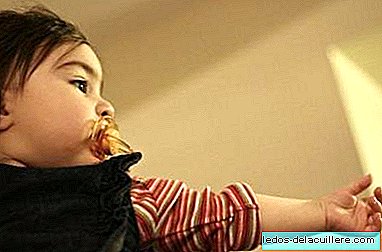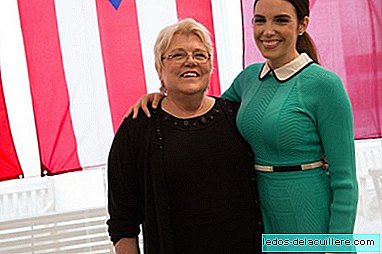
Every time a new academic year begins, many families ask themselves in which nursery or school to school their children. Many preschools and schools offer a different approach during the early years of children's education and each center defends the benefits of its school program.
One type of education that has become popular in the first courses of primary education is game based learning. Science shows that game-based learning improves children's academic results and their development in learning. It can also make your child succeed in the 21st century if he learns the relevant skills for the times.
What is game-based learning?
The children are naturally motivated to play. This type of learning is based on this motivation and uses games as a way of learning. In this context, children can explore, experiment, discover and solve problems imaginatively and playfully.
A game-based approach includes learning initiated by children and supervised by teachers. The teacher stimulates children's learning and questions through interactions that seek to expand their thinking ability.
For example, when children play with blocks, a teacher can ask questions that encourage them to solve problems, predict possible situations and create hypotheses. The teacher can also make the child aware of certain mathematical, scientific and literary concepts, allowing him to use them through practical learning.
More research is still needed on the cause and effect relationships between play and learning, but most studies that have been conducted to date support the value of quality programs based on games during the early years of schooling. .
How is it different from direct teaching?
Game-based learning has been the traditional pedagogical approach of teachers in preschool education programs in Australia and conforms to early education frameworks both nationally and statewide.
Research has shown the long-term benefits of childcare programs based on quality education based on games where children are exposed to learning and problem solving through activities they do on their own initiative and with the supervision of children. teachers.
Unlike game-based learning, there are approaches that focus more on the figure of the teacher who teaches young children basic academic skills. Although this more structured type of teaching and learning is the traditional approach to primary education programs, science is demonstrating that game-based learning is more effective in primary education programs. In these recent studies, children's academic results are better in game-based educational programs than in the case of direct teaching-centered approaches.
Research has also identified that direct education programs in young children can have negative effects, including stress, lack of motivation to learn and behavioral problems. This is especially reflected in children who are not yet prepared for a more formal academic teaching.
What can you get with game-based programs?
As with traditional approaches, game-based programs during the first years focus on teaching and learning. In these programs, the games can be free games (activities carried out spontaneously and directed by the child) or assisted games (also directed by the child, but where the teacher is involved in the activity as a playmate) with deliberate teaching . Both methods are beneficial for the child and the best solution would be a game-based program with options for both free games and assisted games.

In constructive games, children cooperate and solve problems, relating to mathematical and spatial concepts to design and create three-dimensional constructions with their imagination.
Get involved in the games stimulates the child's curiosity and it motivates you to have more control over your environment, which promotes interest and concentration. It also allows the child to develop flexible and high-level thinking processes so essential for learning in the 21st century. These capabilities include solving, analyzing and assessing problems, as well as applying their knowledge and creativity.
The games too encourage positive attitudes towards learning, among which are imagination, curiosity, enthusiasm and perseverance. The type of learning processes and skills that are stimulated with games cannot be replicated with memorization-based learning where the emphasis is on remembering data.
The experimentation of the games is reinforced by the social interactions of teachers and children. Teachers take an active role in guiding children's interactions during games and children are helped when it comes to develop social skills how to cooperate, share and respond to ideas, negotiate and resolve conflicts.
Teachers can also use children's motivation and interest to experiment with different concepts and ideas. In this way, children acquire and practice with some of the most important academic skills and learn in a playful context.
For example, science indicates that the high complexity of language in the learning processes used by children in game-based programs is associated with a high level of literacy that includes an understanding of the structure of words and the meanings of words.
Another study found that children's vocabulary and the ability to tell a story were better in classes with game-based programs than in traditional classes.
 Learning with assisted games: teachers help children with educational tasks during games.
Learning with assisted games: teachers help children with educational tasks during games.Teaching methods led by a teacher or direct teaching also have their place in educational contexts. However, the evidence indicates that there are benefits in quality programs based on games for children. In these programs, the time spent playing is important for learning and not just a way to reward good behavior. In this type of class, children contribute more when deciding what they learn and how they learn it.
Research shows that game-based programs for young children can provide a solid foundation for later success in school. These programs encourage the development of students with good social skills who are able to face challenges and create solutions.
Authors: Natalie Robertson, Professor of Early Childhood Education, Deakin University; Anne-Marie Morrissey, Professor of Preschool Education, Deakin University and Elizabeth Rouse, Full Professor, Early Childhood Education, Deakin University.
This article has originally been published in The Conversation. You can read the original article here.
Translated by Silvestre Urbón.
In Babies and more | Giving children less toys allows them to be more creative. Some children spend less time outdoors than prisoners: why play is important in their education












